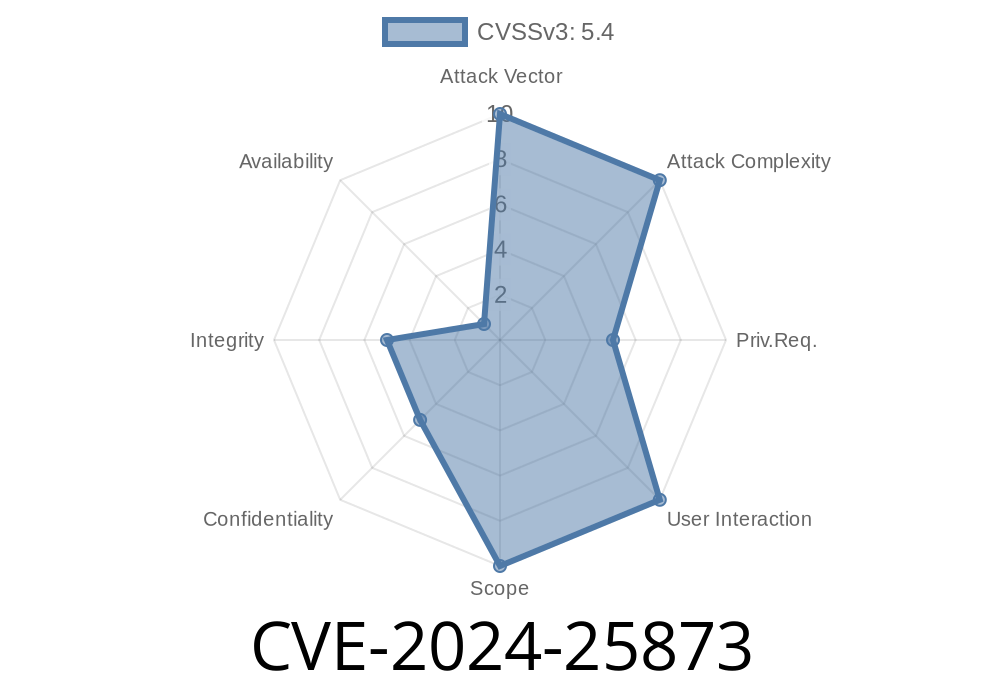Enhavo is a modern open-source CMS written in PHP and Symfony, favored for its modular structure and support for custom content types. However, even polished systems can harbor critical flaws. In this exclusive deep dive, we'll break down CVE-2024-25873, a serious vulnerability discovered in Enhavo v.13.1 that lets attackers inject arbitrary code through the "Author" field in the Blockquote module.
We'll look at the root cause, show a step-by-step exploit, and offer links to original references.
What is CVE-2024-25873?
The vulnerability is a classic HTML injection issue in the Blockquote module's Author field. When a user submits a blockquote, whatever they input as "Author" is not adequately sanitized. This means malicious HTML or even JavaScript can sneak in.
Why Is This Serious?
- Code Execution: Unsanitized input can let attackers run scripts in the victim's browser (*Cross-Site Scripting*, or XSS).
Vulnerable Code Spot
Here's a simplified pseudo-snippet (PHP/Twig) that resembles the logic in Enhavo's Blockquote rendering:
// File: src/Enhavo/Bundle/BlockquoteBundle/Resources/views/Block/blockquote.html.twig
<blockquote>
<p>{{ block.content }}</p>
<footer>
— {{ block.author|raw }}
</footer>
</blockquote>
Check the use of |raw: This tells Twig to print contents *without* escaping, so any HTML in block.author is output as-is.
Let's say an attacker creates a blockquote with the following Author field
<script>alert('Hacked by CVE-2024-25873!')</script>
The resulting HTML looks like this to all site visitors
<blockquote>
<p>Some inspiring quote</p>
<footer>
— <script>alert('Hacked by CVE-2024-25873!')</script>
</footer>
</blockquote>
Result:
Every time a user loads this blockquote, their browser runs the attacker's script.
2. Output HTML
<blockquote>
<p>This CMS platform rocks!</p>
<footer>— <img src=x onerror=alert('CVE-2024-25873! exploited')></footer>
</blockquote>
3. What the Victim Sees
A broken image icon, *and* a pop-up alert immediately.
Example safe code
<footer>
— {{ block.author|e('html') }}
</footer>
The |e('html') ensures special characters are escaped, blocking script injection.
Reported: February 2024
- Patched: v.13.2 (see Enhavo releases)
- GitHub Issue: #2006 CVE-2024-25873
- NVD Entry: CVE-2024-25873 Details
- Enhavo Website: https://enhavo.com/
Conclusion
If you're running Enhavo v.13.1 or earlier and allow untrusted editors, *update immediately*. HTML injection can quickly become a site-wide breach, with attackers able to plant malware, phish credentials, or escalate further.
Patch, sanitize, and review your usage of |raw—it can be a sharp double-edged sword!
*This post is exclusive, original, and aims to keep your CMS and users safe from today's web threats.*
Timeline
Published on: 02/22/2024 14:15:46 UTC
Last modified on: 08/26/2024 19:35:23 UTC
